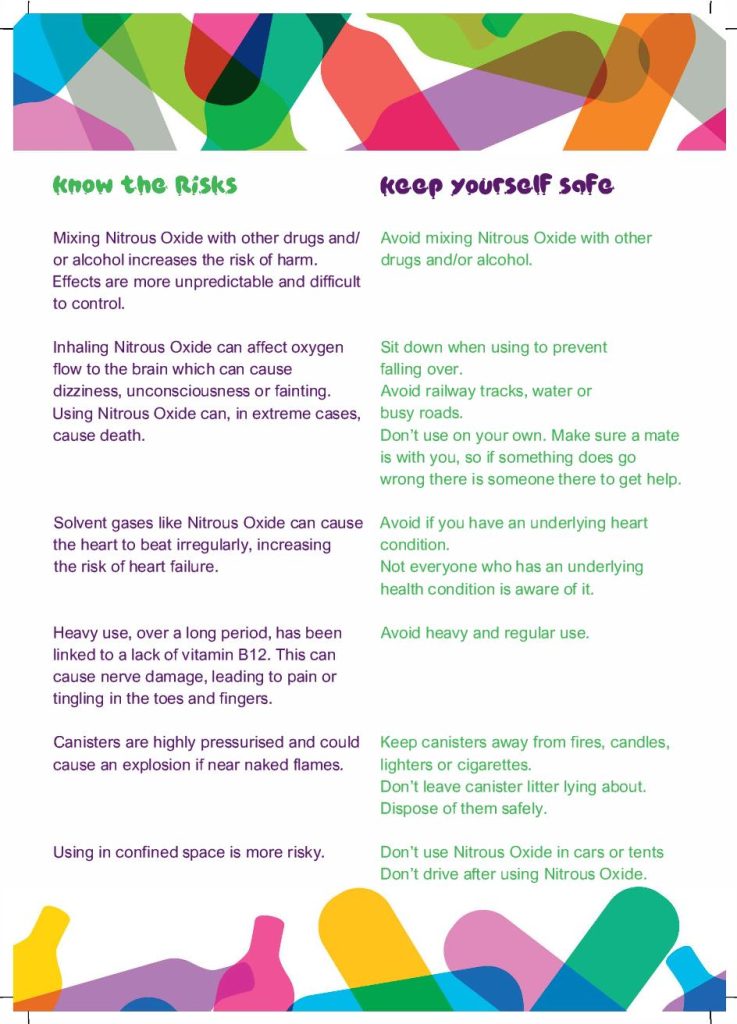



How to stay safe
The best way to stay safe is to not use Nitrous Oxide. Don’t be pressurised into using drugs particularly ones you are unfamiliar with. If you do decide to use, know what the risks are and most importantly, the safest way to use. Pace yourself.
It can be easy to take too much and experience negative effects.
Keep track of how much and how often you’ve inhaled. Never inhale straight from the canister or dispenser.
Always release the gas into a balloon Inhale small amounts from the balloon at a time. Judging a safe amount is difficult, so avoid taking a big breath in one go. Never inhale by putting a bag or balloon over your head as it can cause suffocation. Never share balloons or dispensers with others.
- Avoid mixing Nitrous Oxide with other drugs and/or alcohol.
- Sit down when using to prevent falling over.
- Avoid railway tracks, water or
busy roads. - Don’t use on your own. Make sure a mate is with you, so if something does go wrong there is someone there to get help.
- Avoid if you have an underlying heart condition.
- Not everyone who has an underlying health condition is aware of it.
- Avoid heavy and regular use.
- Keep canisters away from fires, candles, lighters or cigarettes.
- Don’t leave canister litter lying about. Dispose of them safely.
- Don’t use Nitrous Oxide in cars or tents
- Don’t drive after using Nitrous Oxide.
Know the risks
Using Nitrous Oxide can be risky.
- My friends are using Nitrous Oxide and it looks like a laugh.
- The effects don’t last very long and it can be tempting to take more and more.
- Inhaling Nitrous Oxide from the canister or the dispenser is very dangerous.
- Nitrous Oxide from a canister is so cold that it could seriously damage your throat and lungs.
- Sharing balloons with others can pass on infections including Coronavirus
(Covid-19). - Mixing Nitrous Oxide with other drugs and/or alcohol increases the risk of harm. Effects are more unpredictable and difficult to control.
- Inhaling Nitrous Oxide can affect oxygen flow to the brain which can cause dizziness, unconsciousness or fainting. Using Nitrous Oxide can, in extreme cases, cause death.
- Solvent gases like Nitrous Oxide can cause the heart to beat irregularly, increasing the risk of heart failure. Heavy use, over a long period, has been linked to a lack of vitamin B12. This can cause nerve damage, leading to pain or tingling in the toes and fingers.
- Canisters are highly pressurised and could cause an explosion if near naked flames.
- Using in confined space is more risky.







